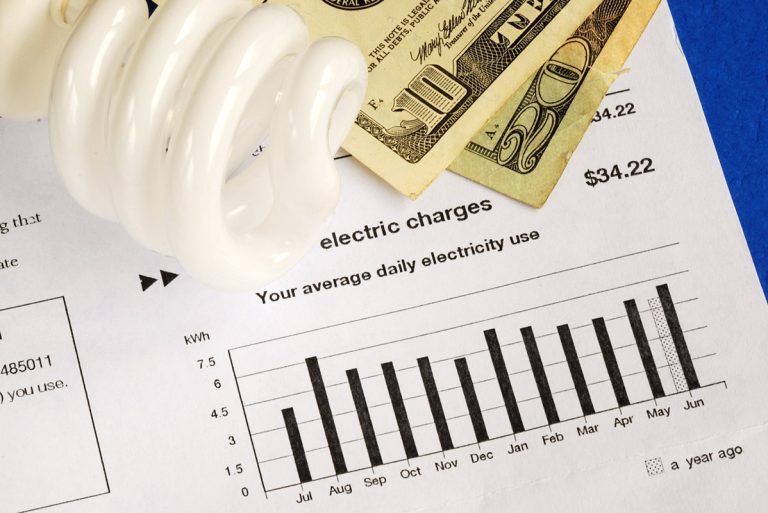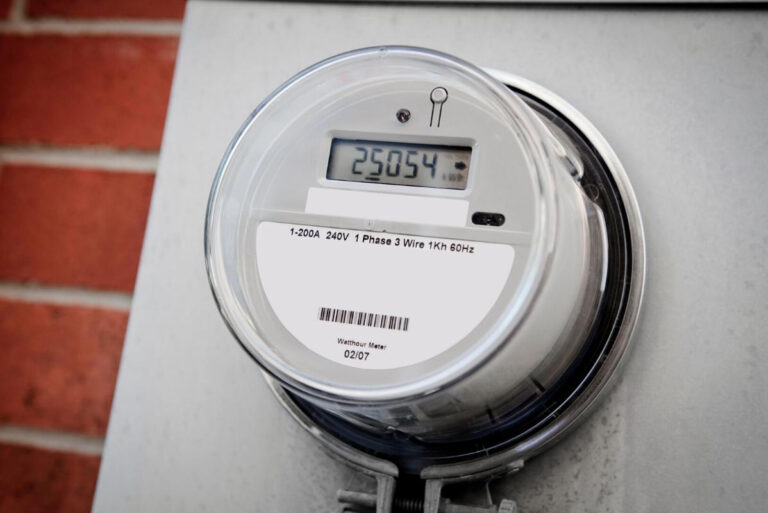If you’re reading this article online on your smartphone or laptop (which you very likely are), then it’s inevitable that petroleum has a role in your daily life! The applications of petroleum span energy, transportation, food, personal care products, and even the keyboard you type on.
When you think about it, it’s amazing that a simple mixture of solid, liquid, and gaseous hydrocarbons could have had such remarkable utility in the advancement of mankind.
But the continued use of petroleum is increasingly becoming a source of controversy. The history of petroleum is in part a bloody one and environmental concerns and the sustainability agenda have led to calls for a curtailment of its use.
It’s clear that petroleum is neither all good nor all bad, therefore, it is important to weigh both sides of the product. In this article, we share 20 important pros And cons of petroleum to help you evaluate the role of petroleum in the 21st century.
14 advantages of petroleum
Petroleum has been used by man for millennia and has played a role as an energy source in diverse civilizations and empires including the Sumatran, Babylonian, Persian, and Chinese empires.
Oil is the fuel of the discoveries of organic chemistry, the invention of the Internal Combustion Engine (ICE), and the industrial revolution. Here are the need-to-know benefits of petroleum:
1. It’s an authoritative energy source that can be used by any vehicle
Petroleum maintains its high demand because key petroleum byproducts are used as fuels that are burnt to generate mechanical work. The most important example of this is the internal combustion engine, invented in the late 1800s. There are three types of ICE, spanning automobiles, shipping, trains, aviation, and even spacecraft all use petroleum byproducts as fuel:
- the spark ignition engine used by automobiles.
- the diesel engine used by trains and industrial machinery.
- the gas turbine jet engines use for aviation and spacecraft.
This makes petroleum essential for every level of human transport and exploration.
2. Stable and reliable energy resource
Petroleum naturally occurs as crude oil, a composite of solid, liquid, and gaseous hydrocarbons. This is an amazing substance that uses high-energy carbon-carbon bonds to store energy with enough stability for it to be extracted, refined, and transported safely.
Petroleum can vary significantly in its density, viscosity, and boiling points, but it is consistent in its stability. The diverse alkanes, cycloalkanes, and hydrocarbons of petroleum are incredibly energy dense but strong enough to prevent excessive volatility.
3. Petroleum is a vital element in industrialization
During the 20th century, petroleum became the world’s most important energy source and a key driver of industrialization and economic growth. Countries that were early to exploit the benefits of petroleum have become more economically developed countries with advanced infrastructure and technology.
Countries use petroleum byproducts in all parts of an advanced economy and provide the fuel needed for manufacturing and trade by road, air, and sea.
4. Petroleum is easily extracted and at a low cost
The modern industrial methods and technologies used to extract oil from below the earth’s surface are advanced and efficient. This short video from Total Energies explains how it’s done:
Because of increasing public awareness and regulatory scrutiny, the oil and gas industry has had to innovate, taking huge steps to simplify petroleum extraction and production so that it has less impact and cost.
This has resulted in the widespread distribution and availability of petroleum and its use as an affordable energy source.
5. Extraction of petroleum is safe
Oil exploration and the extraction and refining of petroleum are inherently risky. But safety standards and techniques have improved alongside innovation in the industry and the extraction of petroleum is now extremely safe.
Companies invest in the equipment and training that is necessary to protect workers while they undertake oil and gas well drilling. Industry and regulatory standards seek to minimize well-known risks of drilling for oil that include:
- being struck by/ caught-In/ caught-between
- explosions and fires
- falls
- high-pressure lines and equipment
- machine hazards
This has helped to reduce the injury and fatality rate in this sector.
6. Transportation of petroleum is easy
Petroleum is extracted and transported in liquid form making it easy to use pipelines, tankers, and heavy goods vehicles to transport it from one point to another. The stability of raw oil means that it can be stored in barrels and move over long distances without exploding.
7. Storage and transportation does not lead to energy loss
Unlike most energy resources that lose their potential energy levels with time, petroleum retains its energy potential. The high-energy hydrocarbon bonds in petroleum are strong and remain intact until refining or deliberate combustion occurs.
This makes oil valuable as it can be transported miles away from the extraction location to the refinery factories without any alterations. It can also be stored long-term without deterioration
8. Petroleum possesses multiple usages
Petroleum is valuable because of the large number of high-utility by-products that can be produced from it. Although over 80% of crude oil is used for gasoline and fuel, petroleum is refined and processed to produce many everyday items. This smart video from the Oklahoma Energy Resources Board (OERB), explains how items produced from oil range from detergents to fertilizers:
9. Petroleum provides a strong economic background in some countries
The demand for petroleum generates massive revenues for the world’s major oil-producing countries. This becomes a major contributor to the GDP of these countries and has built their wealth.

For example, petroleum accounts for about half of the GDP of Kuwait as well as 95% of the government income and export revenues. In many oil-producing countries, the improvement of living standards and infrastructure depends on how their oil performs on the global market.
10. Provision of job opportunities
The oil and gas industry is a 2.1 trillion dollar industry, which is growing as emerging economies industrialize and increase their demand for oil.
Over 6 million people are employed across all stages of the production of petroleum from the exploration and drilling of crude oil (upstream), through transportation (midstream) to the sale and marketing of petroleum products (downstream).
11. Petroleum is used to create renewable energy resources
It’s the renewable industry’s best-kept secret! Wind turbines and solar panels rely on petrochemicals for their production and maintenance.
Photovoltaic cells that capture solar energy require petroleum for their manufacturing. The photovoltaic panels need over a hundred liters of petroleum to produce the ethylene required for just one panel.
12. Petroleum is a high-density fuel
Petroleum is exceptional as an energy source because its strong hydrocarbon bonds release so much energy when they are broken.
Burning one kilogram of petroleum releases 41,868 kilojoules. This calorific value, known as the kilograms of oil equivalent (kgoe) of crude oil means that we only need very small amounts of petroleum to create such huge amounts of energy!
13. Petroleum is used in medical therapies and treatments
Petroleum was used by the ancient Chinese as a medical solution for some skin problems. Currently, we use petroleum to manufacture petroleum jelly and other emollients and ointments, though many people are making the move toward natural skincare products. The organic chemistry that underpins modern petroleum applications has been used to develop a variety of pharmacological agents, including anesthetics.
14. Depleted oil fields are productive
Depleted oil and gas fields have unique geological properties that make them ideal for the long-term storage of gasses. For almost a century, these expired oil fields have been used to store large volumes of natural gas worldwide. Other applications for these locations include CO2 injection and hydroelectricity generation using pumped, pressurized water.
Disadvantages of petroleum
It’s impossible to overlook the downsides when examining the pros and cons of petroleum Let’s look at the downsides of petroleum. The headline issues are obvious to most people but it is essential that we weigh them against the benefits of this resource so that individuals, societies, and nationals make the best decision about how to use petroleum.
Some of the notable cons of petroleum include:
1. Environmental pollution
Environmental pollution from the by-products of petroleum combustion is probably the most well-known downside of petroleum use. Many scientists think the generation of greenhouse gasses from gasoline and diesel causes the proposed phenomenon of global warming.
Exhaust fumes from internal combustion engines are a noteworthy contributor to air pollution, causing acid rain and deteriorated air quality that causes health problems.
2. Oil spillage
Oil has been responsible for major environmental disasters in the 20th century, such as the Exonn Valdez oil spill (1989) and the Deepwater Horizon spill in 2010.
When petroleum finds its way into water bodies, it floats on top of the water, forming a film that blocks out light and hinders aeration. When you look at the persistent devastation an oil spill causes you can see that petroleum can devastate marine life:
3. Has toxic byproducts
Crude oil is refined to produce fuels and other byproducts. But the refinery process generates extremely noxious substances that cause significant, life-limiting health problems. Toxic byproducts of petroleum include:
- Benzo(a)pyrene which can cause lung cancer.
- Acetaldehyde, a known carcinogen
- Benzene. Exposure in pregnancy and early childhood can cause leukemia.
- Formaldehyde (gas) is a known cause of leukemia and other cancers.
- Lead can cause neurological problems in children.
4. It is a limited resource
In many societies, petroleum is used as though there is an inexhaustible supply. But it’s important to consider that it is non-renewable. This means once petroleum is extracted and consumed as a product, it can never be reused or replaced.
Oil is becoming scarce as a resource while global demand continues to increase. This drives up its cost and accelerates its consumption. According to Worldometer, if the current level of consumption is maintained there are only 47 years of petroleum supply left on the earth.
A significant decrease in petroleum supply might cause nasty scenarios, including wars, famines, and economic collapse. Therefore, alternative energy sources need to supplement and reduce the over-reliance on petroleum.
5. Used as a tool for political gain
Modern history is filled with individuals and governments who have exploited petroleum for political gain. In particular, oil-rich, corruption, and violence can harm less economically developed countries as people fight over the oil, and revenues and withhold investment in the infrastructure and services required to raise living standards for the population.
Some African countries lose as much as 40% of their oil revenues to corruption while the countries are impoverished. Alternatively wealthier nations may interfere with the government of oil-rich but poor countries to create dependence and exploit their resources.
6. Regular maintenance of the infrastructure
The upstream, midstream and downstream aspects of oil require complex infrastructure. Significant financial, equipment and human resources are required to maintain oil drilling, refinery, storage, and transportation infrastructure. Intensive monitoring of the machine is involved, and maintenance has to be performed to prevent any accidents or oil spillage.
Conclusion on pros and cons of petroleum
Right now, petroleum seems to be an inescapable part of modern life for the majority of countries in the world. Many of the pollution and environmental harms of petroleum are being addressed by improved technologies, that prevent or restore environmental damage. However, as it is a finite resource, we have to get used to the fact that we cannot take petroleum for granted. Investment in ways to make petroleum production and use cleaner and more efficient, alongside alternative energy sources appears to be the way forward.
Do you think the advantages of using petroleum outweigh its disadvantages? Share with us in our comments.













